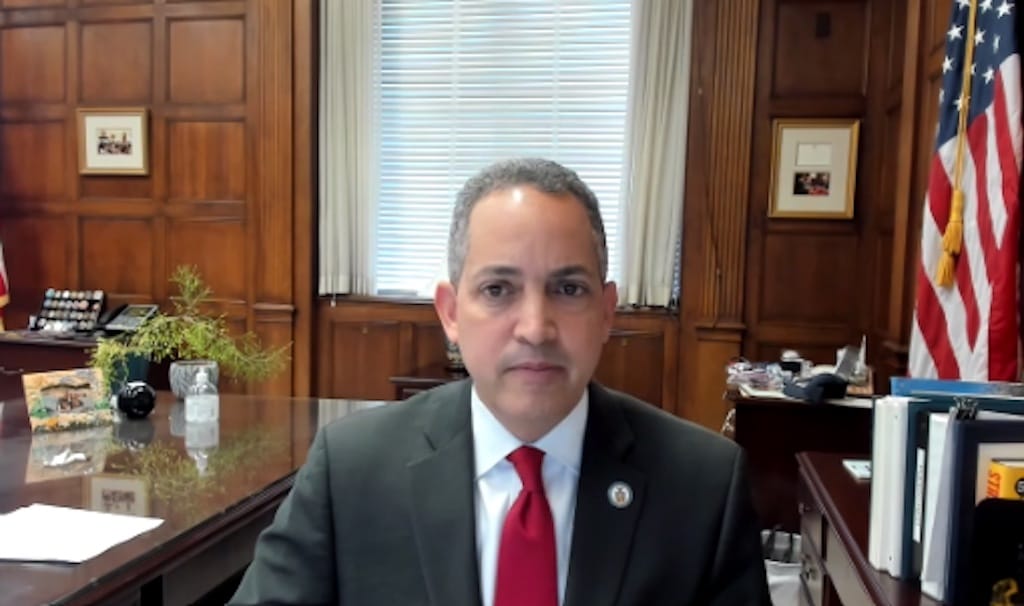NTIA Releases Initial Funds for State Digital Equity Plans
Commerce unveiled plans to allocate an additional $1.25 billion in digital equity grants, alongside the capacity grant program.
Jericho Casper

WASHINGTON, March 29, 2024 – The National Telecommunications and Information Administration on Friday revealed the single largest investment in digital equity in U.S. history: $811 million allocated for states, territories, and tribal nations, with more funding anticipated in the future.
The first tranche of funding under the Digital Equity Capacity Grant Program is now accessible for states and territories to begin executing their digital equity plans.

Allocations ranging from $2.1 million to $55.6 million have been earmarked for each of the 56 states and territories. States, including D.C. and Puerto Rico, must apply for funding by the deadline of May 28, while territories will have until July 31 to submit their applications, according to program application guidance.
What’s more, the Commerce Department revealed plans for a future $1.25 billion competitive grant program during a press call Thursday, which is set to become available within 30 days of the NTIA's initial Digital Equity Capacity Grant award.
Deputy Secretary of Commerce Don Graves announced the forthcoming Digital Equity Competitive Grant Program. In the coming months, the program will disburse hundreds of millions for digital equity initiatives to a diverse array of entities, including political subdivisions of states, native entities, nonprofits, community anchor institutions, local educational agencies, workforce development organizations, and territories.
The funding announced Friday comes from the Digital Equity Act enacted by the 2021 Bipartisan Infrastructure Law, part of President Joe Biden’s “Internet for All” initiative.
It is the first installment of the $1.44 billion Digital Equity Capacity Grant Program, with additional, smaller awards anticipated in FY 2025 and FY 2026.
In preparation to receive this funding, states and territories have been crafting comprehensive digital equity plans to address disparities in digital access, skills and affordability across their footprints.

All 50 States, D.C., and Puerto Rico have submitted their plans to NTIA, with approvals granted on a rolling basis. Notably, NTIA approved ten states' plans on Tuesday, and six states' plans on Thursday.
The plans accepted by NTIA this week include those of Arkansas, Connecticut, Florida, Georgia, Hawaii, Massachusetts, Minnesota, Montana, Nevada, New Jersey, North Carolina, North Dakota, Oregon, Rhode Island, Tennessee, and Washington.
Each of these states received $500,000 to $2.4 million in 2022 to create their respective plans. Prior to these efforts, only California had developed a statewide digital equity plan.
The state plans prioritize identifying barriers to digital equity and outlining specific measures to address them. Congress mandates that these plans address barriers to digital equity faced by specific populations, including low-income households, aging individuals, veterans, individuals with disabilities, those with language barriers, racial or ethnic minorities, and rural residents.
Reflecting on the importance of digital connectivity, Alan Davidson, assistant secretary of commerce for communications and information, emphasized that merely having internet access is insufficient without the necessary devices, skills, and understanding to navigate the online world safely and effectively, particularly in supporting educational endeavors and accessing healthcare services.
Jon Donenberg, deputy director of the White House’s National Economic Council, hailed the initiatives as a continuation of the Biden administration’s strides in digital equity, building upon initiatives like the Affordable Connectivity Program. With the ACP's funding set to expire next month, bipartisan efforts are underway to extend its reach with a proposed $7 billion extension.
President Biden has committed to ensuring that every single household in America will have access to affordable, reliable high-speed internet by 2030. The federal government’s “equity and infrastructure commitments are a testament to that,” Donenberg said.









